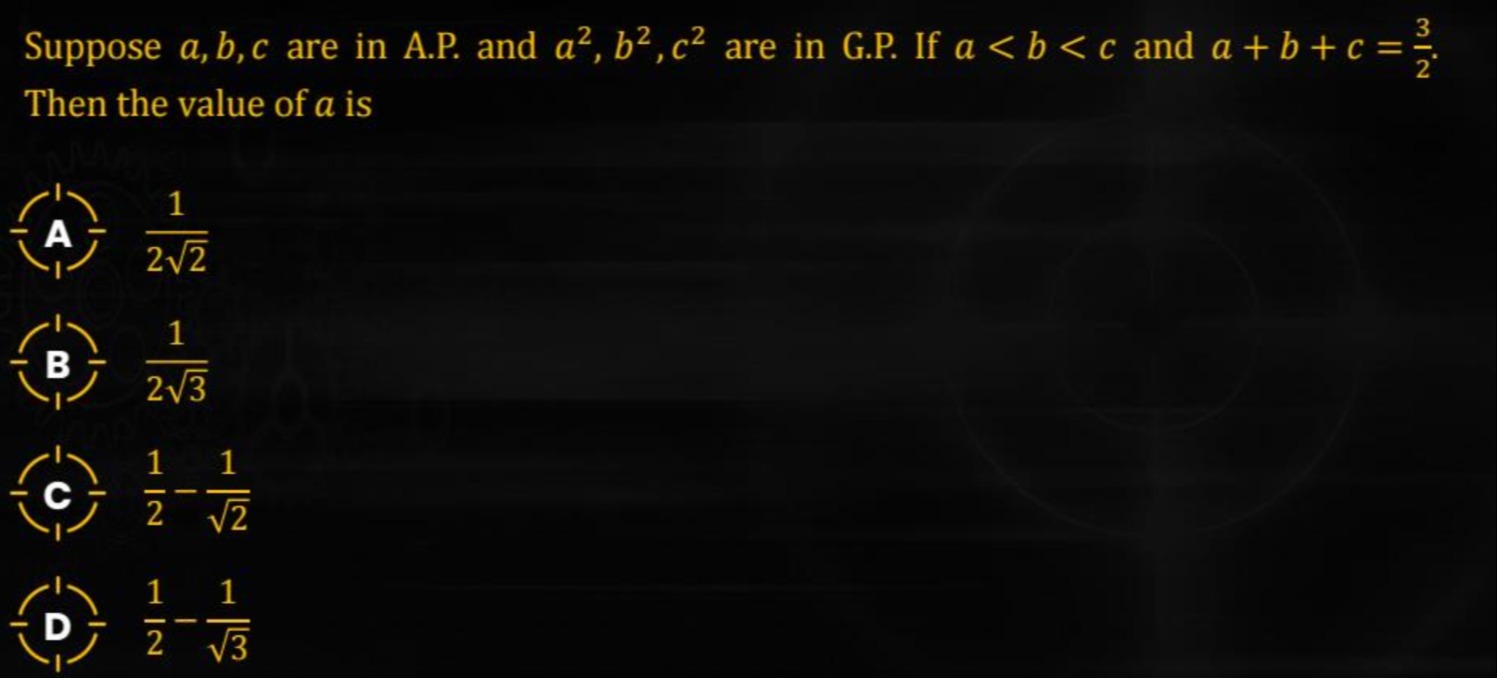Question
Question: Suppose a,b,c are in A.P. and $a^2, b^2, c^2$ are in G.P. If $a < b < c$ and $a + b + c = \frac{3}{2...
Suppose a,b,c are in A.P. and a2,b2,c2 are in G.P. If a<b<c and a+b+c=23. Then the value of a is

221
231
21−21
21−31
21−21
Solution
Given a,b,c in AP, we have 2b=a+c. Given a+b+c=23. Substituting a+c=2b, we get 2b+b=23, which simplifies to 3b=23, so b=21. From a+c=2b, we have a+c=2(21)=1.
Given a2,b2,c2 in GP, we have (b2)2=a2c2, which means b4=a2c2. Taking the square root of both sides, b2=±ac. Since b=21, b2=41. So, 41=±ac.
Case 1: 41=ac. We have the system of equations: a+c=1 ac=41 The quadratic equation with roots a and c is x2−(a+c)x+ac=0, which becomes x2−x+41=0. Multiplying by 4, we get 4x2−4x+1=0, or (2x−1)2=0. This gives x=21. So, a=c=21. This contradicts the condition a<b<c.
Case 2: 41=−ac. So, ac=−41. We have the system of equations: a+c=1 ac=−41 The quadratic equation with roots a and c is x2−(a+c)x+ac=0, which becomes x2−x−41=0. Multiplying by 4, we get 4x2−4x−1=0. Using the quadratic formula, x=2(4)−(−4)±(−4)2−4(4)(−1)=84±16+16=84±32=84±42=21±2. The two roots are 21+2 and 21−2. Given a<b<c and b=21, we must have a<21 and c>21. Therefore, a=21−2 and c=21+2. The value of a is 21−2=21−22=21−21.
